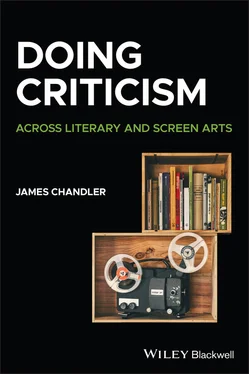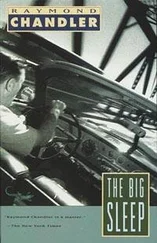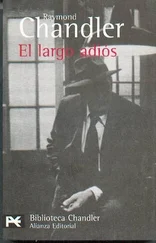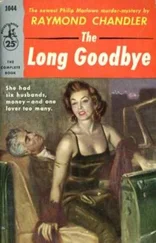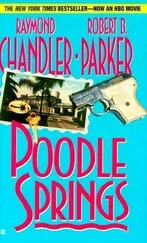Forbidden fruit a flavor has
That lawful orchards mocks;
How luscious lies the pea within
The pod that Duty locks! 12
Looking at these two poems together, critically, we might ask a new set of questions. Which is a better poem? What is the difference between their treatment of the question of how sweet it is to taste fruit that one is not supposed to be tasting? How much does it matter that the second poem was published some forty years earlier and composed well before that? How much does it matter that it was written by a woman? By Emily Dickinson, in fact? Is there an allusion to the book of Genesis in the Dickinson poem? Is there an allusion to the book of Genesis in the Williams poem?
As we think about these two poems in broader contexts, other critical questions come to mind, especially if we learn a little more about the authors. One of Emily Dickinson’s only sojourns beyond her home in Amherst, Massachusetts, was a brief spell in the nearby Mount Holyoke Female Seminary. Does this piece of information matter to how we think of this poem’s relation to the book of Genesis? Williams, for his part, was active in a twentieth-century poetry movement that rejected a heavy reliance on poetic diction, on simile and metaphor, and on figurative language generally. Should “This Is Just to Say” be paired with another famously brief, elemental poem by Williams, the one about a red wheelbarrow—“glazed with rain / water / beside the white / chickens”—in order to see both poems as advancing his effort to, as he put it, clean off the words of American English? 13Should its straddling of verse and prose be paired with another short American poem about food and sustenance, Gwendolyn Brooks’ “The Bean Eaters” (1960)? In this poem, two rhyming quatrains, both relatively terse and formal, about an old, impoverished African American couple, eating and remembering, give way to a final stanza that seems to dissolve its verse into prose: “And remembering…/ Remembering, with twinklings and twinges, / As they lean over the beans in their rented back room that is full of beads and receipts and dolls and cloths, tobacco crumbs, vases and fringes.” 14What does this formal dissolution convey about conditions of their daily life and the circumstances of their acts of remembering? What does it convey about lived experience on the South Side of Chicago in the 1960s?
1.3 Limits of the Lyric Paradigm
These are the sorts of questions that will be familiar enough, I suppose, to anyone who has taken even an elementary course in the subject we call “English.” It has, however, grown fashionable in recent decades to think of them as questions not particularly essential to the great issues of the modern world, or even to the hard work of getting on in life. At the outbreak of the Second World War, W. H. Auden famously wrote that “poetry makes nothing happen,” and even Wordsworth, for all his faith in the mission of the poet, confessed that he sometimes felt that his attempt to address the great problems of his time by resort to poetry might seem merely a “feeble effort.” 15Questions of social efficacy aside, however, there has been a clear demotion of the study of poetry since the decades when it was enshrined at the heart of liberal education, an essential part of what it meant to learn to read well. This book can be thought of in part as resisting that demotion.
An initial response is simply to declare that engaging with poems in the way I have begun to do with Williams, Dickinson, and Brooks is a pleasure in itself; that the sheer joy of articulate response, as we put our pleasures and our puzzles into words, is already a great deal. The drive to do criticism, H. L. Mencken wrote, “is no more and no less than the simple desire to function freely and beautifully, to give outward and objective form to ideas that bubble inwardly and have a fascinating lure in them, to … make an articulate noise in the world.” 16One might go further to claim that this sort of activity opens the mind and liberates the spirit; indeed, that its interplay of analysis and judgment brings, as I put it earlier, new value into the world. In our engagement with Williams, Dickinson, and Brooks, to be sure, the question of value is dynamically in play: the poems seem to analyze and judge us even as we attempt to analyze and judge them. 17The guiding assumption behind Richards’ influential program in practical criticism is that the organized and “articulate noises” of a lyric poem provide a particularly good—even paradigmatic—starting point for this activity.
Two questions thus emerge here and now. First, how do we extend the scope of criticism’s subject matter beyond the lyric poem—the poem itself—so as to identify a range of things that might serve the work of practical criticism as well as the lyric poem does? Second, how do we extend the benefits of critical engagement beyond the circumference of personal growth and gratification? Both are important questions for addressing the question of how to do criticism at the present time.
To the question of extending the scope of practical criticism’s subject matter, at least two important lines of response have been pursued in the past. Both will be familiar enough, but one is more limited than what I propose here, the other more expansive. The former approach is to extend the subject matter of criticism to include a domain called “literature.” Indeed, when the subject of “critics and criticism” arises in academic circles, the default understanding is that the object in question is in fact “literature.” This is easy to see in a quick sampling of titles, as in the case of the volume bearing that very title, Critics and Criticism , in which the Chicago Aristotelians produced one of the most weighty essay compilations of the mid-twentieth century. 18We might also think of landmark books such as Georg Lukács’ Writer and Critic or Edward Said’s The World, the Text, and the Critic ; or the major anthology by Elaine Showalter, Sandra Gilbert, and Susan Gubar, New Feminist Criticism ; or Barbara Christian’s Black Feminist Criticism: Perspectives on Black Women Writers . 19In every case, “criticism” means by default “literary criticism.” This explains why, when commentators like Eagleton speak of the death of criticism they tend to mean, specifically, “literary criticism,” even as they take poetry as its primary concern. 20
One important support for this familiar disciplinary category is a developed notion of “reading” that is assumed to be foundational for all literature. On this understanding of things, the practice of criticism teaches us to read better, to read on a higher level than even that of an advanced literacy. It enables us, as well, to produce “readings” of the works we engage. A major Black feminist critic of our moment, Hortense Spillers, also betrays an assumption that criticism means literary criticism but does so in a way that also helpfully makes the link between reading and producing a reading. Addressing “the relationship between the critical work and that which it contemplates,” Spillers contends that “the literary work describes, or carves out, an arena of choices, and in doing so, the writer suspends definitive judgment.” Conversely, she continues, “the critic’s task, as Northrop Frye observes, is to speak or explain where the work does not, to supply the right questions for a proffered riddle.” 21This “speaking” or “explaining” is the production of a reading, and Spillers’ and Frye’s emphasis on the role of questions in that process points to an issue for the doing of criticism that will be central to my discussion in this book.
Spillers’ book, which addresses fiction by Tony Morrison and Ralph Ellison, drama by Langston Hughes, and the poetry Gwendolyn Brooks, also dramatizes the point that, within the conception of criticism that takes “literature” for its default subject matter, there is nonetheless a considerable range in what counts as literature. And the reasons for this range of understandings are not far to seek. Consider the cases of poetry and drama. Within the discipline of literary criticism, as practiced in the wake of Richards’ New Criticism, the lyric poem often retains a central place and paradigmatic role: one need only think how often a poem like Keats’ “Ode on a Grecian Urn” becomes the occasion for an illustrative exercise for what criticism can do or how it should be done. 22Yet there is something odd about this development at the heart of Richards’ reinvention of literary criticism, since poetry in its origins is anything but literary in the strict sense of the term: occurring in the medium of letters . Poetic composition, as has been amply demonstrated in the anthropology of nonliterate societies, does for such cultures the work of mnemonic codification and conservation that would be taken up by writing itself in the transition to literacy. Some of the most significant features of written or printed poetry—its constitution by rhyme, by rhythm, by sound —are residues of an oral function, a sign of the fact that poetry is precisely not literary in its origins. Poetry, after all, is intricately connected with song, and this is true for both lyric and epic poetry.
Читать дальше
